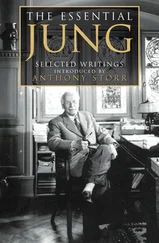1 ...6 7 8 10 11 12 ...15 Although we spend about a third of our lives asleep, the reasons why we need sleep are not fully understood. That we do need it is certain. As interrogators long ago realized, depriving prisoners of sleep is a relatively quick method of breaking them down. Although a few exceptional people can, without deterioration, survive without sleep for quite long periods, the majority of previously normal human beings exhibit psychotic symptoms like delusions and hallucinations after only a few days and nights without sleep. It is also worth noting that many episodes of mental illness are preceded by periods of insomnia.
The integrating function of sleep may be linked with dreaming. In 1952, Nathaniel Kleitman discovered that there were two kinds of sleep, which can be shown by recording the electrical activity of the brain during sleep to follow a regular cycle. As subjects relax and fall asleep, the fairly rapid electrical waves which are characteristic of the brain’s waking activity are replaced by slower, more ample waves. These slower waves are accompanied by slow, rolling eye movements which can easily be seen through the closed eyelids of the sleeper, and which are entirely involuntary. It is possible to record these eye movements at the same time as the brain waves. When people first go to sleep, they enter quite quickly a stage of deep sleep from which it is difficult to rouse them. After about thirty or forty minutes, they begin to sleep more lightly; the sleeper’s breathing becomes faster and more irregular; there are small twitches of his face and fingertips, and his eyes make rapid movements as if he was actually looking at something. This phase of rapid-eye-movement sleep, or REM sleep as it is now called, lasts about ten minutes. Then the subject returns to sleeping more deeply. The whole cycle lasts about ninety minutes. Someone who sleeps for seven and a half hours generally spends between one and a half and two hours in this lighter, REM phase of sleep.
A high proportion of people who are awakened during REM sleep recall a dream, whereas very few of those awakened during the deeper phases of sleep do so. In other words, it looks as if most people dream every night for short periods every ninety minutes or
Following the discovery of the two varieties of sleep, it became possible to prevent people from dreaming whilst still allowing them an adequate period of sleep. Early experiments in depriving subjects of REM sleep suggested that not allowing dreams to occur produced a variety of symptoms, but later experiments have not confirmed this finding. However, those deprived of dreaming show an increased proportion of REM sleep to deep sleep when dream deprivation is discontinued.
The same phenomenon has been observed in people taking barbiturates, amphetamines, or alcohol. When the drugs are stopped, a rebound phenomenon occurs. The subject shows an increase in REM sleep as if he were trying to make up for what had been missing. According to William C. Dement, schizophrenics in remission show a particular need for REM sleep. After only two nights of dream deprivation they showed an excessive REM rebound. When not in remission, that is, when experiencing overt symptoms of schizophrenia like hallucinations and delusions, or when exhibiting types of bizarre behaviour characteristic of the illness, schizophrenics do not show REM rebound after two nights of deprivation. 7 If further experiments confirm that the overtly psychotic do not need dreams to the same extent as normal people, the old idea that schizophrenic illness is ‘dreaming whilst being awake’ becomes even more convincing. Conversely, although normal mortals do not become psychotic even if totally deprived of REM sleep, entering the mad world of dreams each night probably promotes mental health in ways we do not fully understand.
It seems clear that some kind of scanning or re-programming takes place in dreams which has a beneficial effect upon ordinary mental functioning. Dreaming seems to be biologically adaptive. Stanley Palombo suggests that dreams are concerned with matching past and present experience. He thinks that
the dream compares the representation of an emotionally significant event of the past with the representation of an emotionally significant aspect of the previous day’s experience. 8
This information-processing function of the dream is concerned with allotting the new experience to the right slot in the permanent memory. Whether this model accounts for all dreams is dubious; but it goes some way to explaining why it is that in dreams, time is so often out of joint. If past and present are being compared, it is not surprising that, in the dream, they so often appear to be confused.
Another example of some kind of re-ordering process taking place in the brain can be discerned in the stage of the creative process which Graham Wallas called incubation. Wallas’s first stage is preparation. The creative person develops some preliminary interest in a particular subject, collects material, and reads everything he can find about it. Next, a period of time intervenes during which the accumulated material simmers, or is unconsciously scanned, compared with other mental contents, organized, or elaborated. We do not understand what goes on during this period of incubation, but it is a necessary prelude to the next stage, that of illumination. This is the time at which the creative person has a new insight, discovers a solution to his problem, or in some other way finds that he can order the material which he has accumulated by employing an overriding principle or an all-embracing conception.
The time taken for incubation can vary from a few minutes to months or even years. Brahms said that, when a new idea occurred to him, he would turn to something else and perhaps think no more of the new idea for several months. When he took it up again, he would find that the idea had unconsciously assumed a different form at which he would begin working.
It would be absurd to suggest that the new idea was reverberating through the networks of the brain for several months to the exclusion of all else. The brain is highly complicated, and capable of carrying out a great many operations simultaneously. But the parallel with the scanning or sorting process which occurs spontaneously in dreams, or which is deliberately encouraged by prayer or meditation, is striking. What takes place in the circuitry of the brain is a mystery; but it can be confidently asserted that these processes require time, passivity, and preferably solitude. Creative people may or may not need the peace of being physically alone. Schubert and Mozart, for example, could concentrate on their ideas in circumstances which others would find distracting. But observers have generally noted that such people are greatly absorbed with their own thoughts even when in company. Winnicott’s paradoxical description of ‘being alone in the presence of’ may be relevant not only to the infant with its mother, but also to those who are capable of intense concentration and preoccupation with their own inner processes even when surrounded by other people.
The fact that mental processes of the kind discussed above require time, and that incubation resulting in new insights may need long periods of gestation, may also be related to one factor which some researchers have singled out as characteristic of human intelligence. Intelligent behaviour has been defined as ‘behaviour that is adaptively variable within the lifetime of the individual’. 9 It is the opposite of the kind of behaviour governed by pre-programmed patterns which is characteristic of many species further down the evolutionary scale. Behaviour determined by built-in responses to environmental stimuli is both automatic and immediate. Human behaviour, which is in most circumstances much more flexible, not only depends upon learning, and hence upon memory, but also upon the capacity not to respond immediately and automatically to a given stimulus. Stenhouse suggests that, if intelligent behaviour is to evolve from instinctive behaviour, three basic factors must be developed.
Читать дальше












